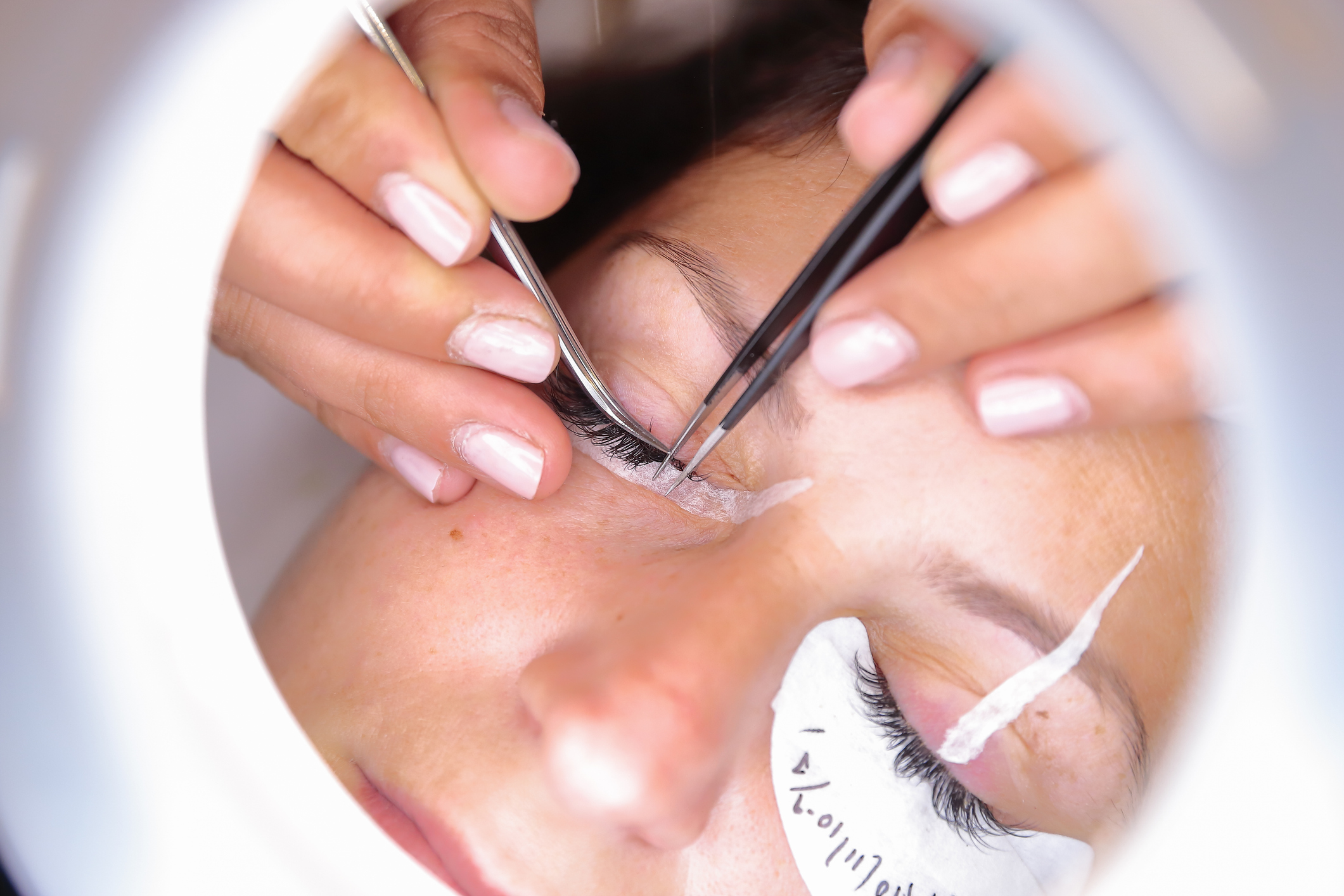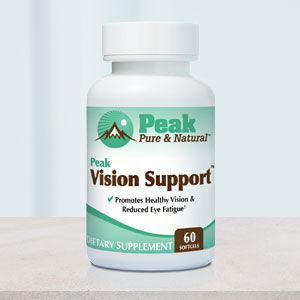Get Easy Health Digest™ in your inbox and don’t miss a thing when you subscribe today. Plus, get the free bonus report, Mother Nature’s Tips, Tricks and Remedies for Cholesterol, Blood Pressure & Blood Sugar as my way of saying welcome to the community!
10 serious reasons to rethink lash extensions

Eyelash extensions have been rapidly gaining in popularity, so much so you may regularly see friends and strangers who appear to have lashes so luxe they could fan the air around them.
You can’t even hop onto Facebook or Instagram without a lash-loving influencer sharing how-to videos or pushing lash extension brands. It’s enough to make you wonder if you shouldn’t give them a try.
Long lashes are coveted by women of every age, but before you head off to the salon, it’s important to understand the “price” you might pay — and if it’s worth it…
The function and purpose of eyelashes
Eyelashes aren’t just beautiful. They’re functional too.
Your eye is exposed to numerous elements every single day, including viruses and dangerous bacteria, looking for any opening they can find.
However, an important function of your eyelashes is keeping these airborne particles away from the eye’s surface.
Additionally, they help the eye stay lubricated when you blink, preventing dry eyes and reducing risk of infection.
When women near menopause they can experience some hair loss and this can also affect changes to their eyelashes (they are actually short hairs). They may appear less full, become brittle and seem to lose their upward curve.
It’s easy to see then why eyelash extensions, made up of individual fibers usually attached to each natural lash or lash line, could make anyone feel better about their lashes.
But they’re certainly not problem-free…
Health dangers of eyelash extensions
Lash extensions can be made of different types of material, including everything from silk to hair from mink or horses. They can even be formed from things like nylon or plastic.
Extensions are most often attached to the base of the lash line using glue. This means that either the fibers themselves or the glue can create health concerns.
The most common risks associated with extensions include:
- Lash breakage – If eyelash extensions are not applied properly, your own lashes can break off.
- Permanent loss of your own lashes – The glue used can cause damage to hair follicles, causing you to permanently lose your real eyelashes.
- Allergic reaction – Although most technicians will do a pre-appointment patch test, usually on the wrist or behind the ear, allergic reactions to the glue used in applying eyelash extensions can still occur. In fact, one study found that over 40 percent of women who received extensions had an allergic reaction to the adhesive.
- Infection – Eyelash extensions are much harder than normal lashes. They can swing down like a door, scratching your cornea and causing an infection.
- Misapplication – Because the glue used for extensions should never come into contact with the eye’s surface, proper application is critical. Sadly, there have been numerous cases of people gluing their eyelids together when trying to apply extensions.
- Keratoconjunctivitis – Research into eyelash extensions found that over 60 percent of women reported suffering from keratoconjunctivitis after getting the glue into their eyes. In this condition both your cornea and conjunctiva are inflamed, causing itchy, irritated eyes, blurry vision and sensitivity to light.
- Toxic conjunctivitis – When eyelash glue comes into contact with the eye’s surface it can lead to toxic conjunctivitis and conjunctival erosion. When this happens, the layer of cells on the surface of the cornea, known as the epithelium, loosens from the layer underneath. Not only is this condition quite painful, it can also cause problems with your vision.
- Blepharitis – Blepharitis or inflammation or irritation of the eyelids is the most commonly reported condition caused by eyelash extensions. Blepharitis occurs when the glands within the eyelash follicles at the edge of your eyelids become blocked. The result is a build-up of dangerous bacteria, blocking follicle secretion and leading to inflammation.
- Mite infestation – Poor lash tool hygiene can allow mites to move from one person to the next and leave you with a nasty lash mite infestation.
- Cancer – If all that weren’t enough, research has shown that approximately 75 percent of professional glues used in eyelash extensions released formaldehyde, a recognized cancer-causing chemical. It’s the same chemical used to embalm cadavers.
Clearly, eyelash extensions may not be all their cracked up to be.
Longer lashes naturally
There are a few ways you can encourage long, thick lashes naturally.
Consider applying a green tea compress to the eyelids. Experts say that its antioxidant and anti-inflammatory properties, plus its panthenol and caffeine content, may work to hydrate lashes and stimulate hair growth.
Also, consider taking supplements like biotin and omega-3s. While biotin is best known for strengthening and protecting hair growth, omega-3s help fight inflammation and nourish lashes to encourage healthy growth.
You may also want to break out a lash curler. These inexpensive tools were made popular decades ago and, when used carefully and hygienically, can give your lashes a curvy lift. Then if you carefully apply mascara mostly at the base of your lashes, you’ll be batting thicker-looking lashes in no time.
What about eyelash serums? The American Academy of Ophthalmology has some warnings you’ll want to read to make a well-informed decision.
Finally, if you still opt for extensions, look for a reputable salon that practices good hygiene and avoids formaldehyde extension glues.
Editor’s note: Did you know that when you take your body from acid to alkaline you can boost your energy, lose weight, soothe digestion, avoid illness and achieve wellness? Click here to discover The Alkaline Secret to Ultimate Vitality and revive your life today!
Sources:
10 Ways Grow Longer Eyelashes, According to a Dermatologist — Byrdie
Eyelash Extensions Can Be Seriously Dangerous, Expert Warns — Science Alert















